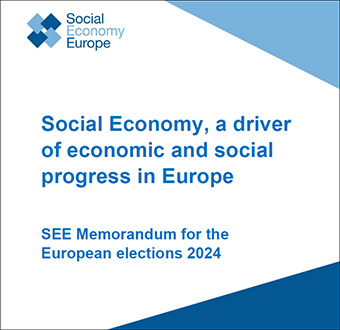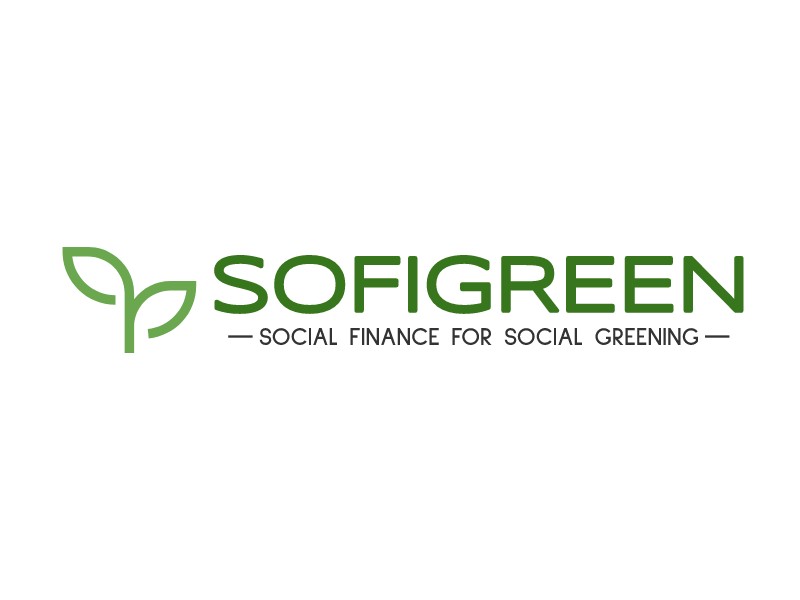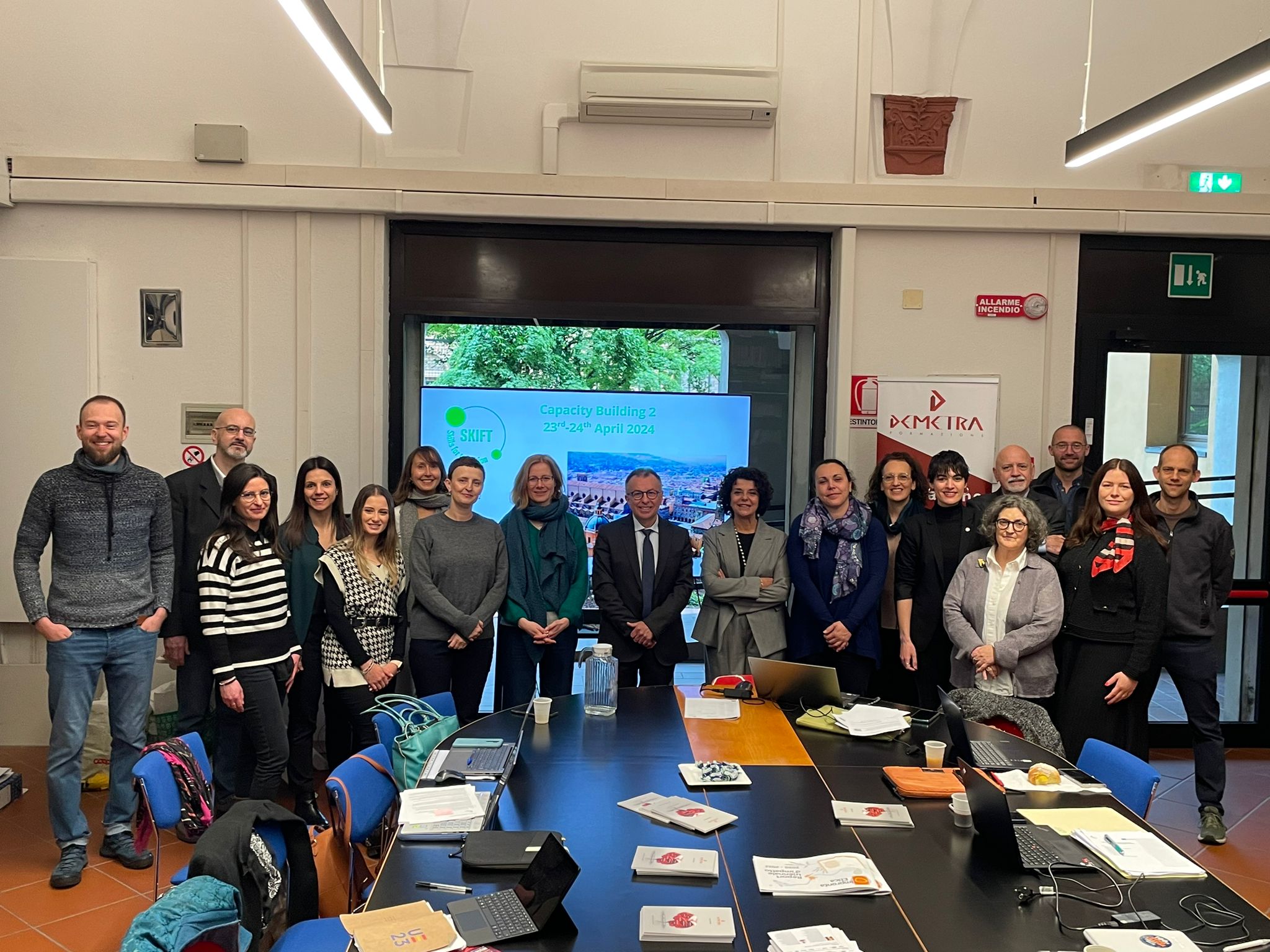REVES is the unique European organisation based on partnership between local and regional authorities and territorial social economy organisations...
Read MoreIn recent years, the role of the social and solidarity economy in promoting key EU objectives, such as social and green transition, the creation of quality employment, sustainable development, social innovation, the promotion of entrepreneurial diversity and a responsible entrepreneurial culture etc. has been increasingly recognised by EU and international policy-makers.
It is above all DG Growth (Internal Market, Industry, Entrepreneurship and SMEs) and DG Employment, Social Affairs and Inclusion that deal with issues related to social economy. However, an interservice task force which meets on a regular basis to better coordinate policy initiatives and consider their impact on the social economy involves also an ever increasing number of other DGs and service departments.
After years of rather sporadic policy actions regarding the social economy – with the EQUAL initiative being most probably one of the most important and impactful of these measures – an important initiative for the promotion of social economy/social entrepreneurship was launched, on 25 October 2011, with the publication of the European Commission’s communication “Social Business Initiative – Creating a favourable climate for social enterprises, key stakeholders in the social economy and innovation”. It was developed by former DG Market, DG Employment and DG Enterprise in the framework of the implementation of the Single Market Act (April 2011). The communication proposed 11 main actions to promote social economy and social entrepreneurship in the wider sense.
Since then, initiatives for the promotion of an appropriate eco-system for the social economy have multiplied and taken up speed.
Recognition of the social and solidarity economy as a cornerstone of EU economy increased significantly. Social economy was included in a number of important EU policy initiatives such as the Start-up and Scale-up Initiative (2016). The “New Industrial Strategy for Europe” (2020) includes the social economy as one of the 14 industrial eco-systems on which the strategy will focus. Specific actions around skills development within the social economy are currently being developed in the framework of the European Pact for Skills.
On 9 December 2021 the European Commission published the Social Economy Action Plan (SEAP), which is accompanied by two staff working papers. The document is built around three priority areas:
- Business environment (incl. stimulating appropriate legal frameworks at different level, taxation, etc.);
- Opportunities and building capacities (incl. enhancing access to funding, support to capacity-building for the sector, public administration, etc.);
- Awareness and recognition (incl. collection of data on the social economy in the EU, initiatives targeting specifically youngsters, etc.).
The development and implementation of EU policies focusing or impacting on the social economy is followed and discussed by the multi-stakeholder expert group on social economy and social enterprises (GECES), in which REVES is represented by its president Ana Umbelino.
Specific actions stimulating cooperation between local/regional authorities and the social economy were introduced with the European Social Economy Regions initiative and the Social Economy Missions Programme.
Possibilities for support to social economy/social entrepreneurship have also been included in European cohesion policy and related Cohesion Policy Funds. They are not limited to the European Social Fund, but also include other funds such as the European Regional Development Fund (ERDF) and transversal instruments such as Community-Led Local Development, etc.
The proposal for a regulation on a European Union Programme for Social Change and Innovation (PSCI), published in October 2011, suggested to include, among the main priorities of the programme, social entrepreneurship and, in particular, improved access to finance for social enterprises. Such proposal was then embedded in the programme for Employment and Social Innovation (EaSI programme), which foresees a special fund devoted to the creation of financial instruments to support social enterprises. The implementation of the programme was entrusted to the European Investment Fund, which provides support to intermediary financial bodies in order to foster investments in social economy enterprises.
In 2009, a call for proposal regarding the establishment of satellite accounts for cooperatives and mutuals at European and national level was published. Although some member states developed experimentations in this field (eg. Spain), a EU-level regulation is still to come.
Another initiative, further back in time, but which proved of great importance for social economy all over Europe, was the EQUAL programme. Financed through the European Social Fund and concluded in 2008, this programme lent support to projects fighting discrimination and social exclusion. EQUAL contained a specific strand on business creation and social economy.
Social Economy has been considered a key topic by several Council’s Presidencies.
At its meeting on 7 December 2015, almost twenty years after the first mentioning of social economy in a Council conclusion, the Council for Employment and Social Affairs adopted the proposal of the Luxembourg Presidency for Council conclusions on “The promotion of the social economy as a key driver of economic and social development in Europe”. The Council, after inviting member States and Commission to “establish and further develop European, national, regional and local strategies and programmes for enhancing the social economy”, focuses on four main areas of intervention: awareness, recognition and education; social innovation; regulatory environment; access to finance.
Since then, representatives of an increasing number of EU Member States meet in the Monitoring Committee for the Luxemburg declaration to discuss possibilities to jointly promote the development of the social economy. A number of summits and other events have been organised under different EU presidencies and declarations such as the Toledo declaration were issued.
The Social Economy Action Plan, issued in December 2021, announces an initiative by the European Commission to encourage Council Recommendations regarding the improvement of policy and legal frameworks.
The European Parliament Social Economy Intergroup which had first been established in 1990, provides a follow-up of resolutions and positions and stimulates the work of the European Parliament in the area of social economy. It facilitates cooperation of different members of the Parliament (MEPs), coming from different political groups, on social economy and acts as a driving engine of important policy initiatives. In addition, it provides an important platform of exchange between MEPs and civil society. The secretariat of the Social Economy Intergroup of the European Parliament is currently ensured by Social Economy Europe. Former REVES Co-President and then MEP Jens Nilsson led the intergroup during several years in the legislative term 2014-2019.
The European Parliament recognized the social economy and called for its support in a number of reports focusing directly on the social economy or including the social economy.
Examples (not exhaustive) are the INI Report on the EU Action Plan for the Social Economy (2022), the “Report with recommendations to the Commission on a Statute for social and solidarity-based enterprises” (2018), the report entitled ‘How best to harness the job creation potential of SMEs?’ (2016), the European Parliament resolution “Towards the statute of the European Cooperative Society with regard to employee participation” (13 March 2012), the European Parliament resolution on the Financial, Economic and Social crisis (6 July 2011), the European Parliament resolution on the Future of Social Services of General Interest (5 July 2011), the European Parliament resolution on a Single Market for Enterprises and Growth (6 April 2011), the European Parliament resolution on a Single Market for Europeans or the European Parliament resolution on Unlocking the Potential of Cultural and Creative Industries (12 May 2011).
In February 2009, the European Parliament already responded to requests to better integrate social economy in EU policies and strategies by adopting an own initiative report on Social Economy, the Toia report.
Apart from advocating a better recognition of social economy at local, national and European level and the creation of a level playing field with other enterprises, the report also endorses the promotion of local partnerships. In article 21, for example, it recommends that Member State support of social economy enterprises should be interpreted as a genuine investment in creating solidarity networks that can strengthen the role of local communities and authorities in developing social policies. Moreover, article 22 stipulates that most social problems should be approached through local solutions, in order to deal with practical situations and problems; in order to be effective, such action requires strict rules on coordination, which means a high level of cooperation between public authorities and social economy enterprises.
Also the consultative bodies of the European Union have become active with regard to social economy.
In July 2021, the Committee of the Regions adopted its opinion “An Action Plan for the Social Economy” (Rapporteur: Mikel Irujo Amezaga, ES, PES), in which it formulated expectations, on the part of cities and regions, regarding the Social Economy Action Plan which was being prepared by the European Commission at that moment.
In its opinion “The role of the social economy in restoring economic growth and combating unemployment” (rapporteur: Luis Gomes, PT, EPP), published in 2015, the Committee of the Regions takes a clear position in favour of the social economy and partnerships between local/regional authorities and the social economy.
During the last months of 2015 the REVES secretariat closely followed the CoR’s work on this document and was consulted several times.
In 2008, during the European conference “Key factors of success in promoting social cohesion: Contribution of partnerships between local authorities and organisations of social interest”, organized by REVES, Luc Van den Brande, at that time President of the Committee of the Regions, highlighted, in his opening speech, the importance of partnerships between local/regional authorities and social economy and possible actions in the future.
In 2002, the Committee of the Regions had adopted an opinion on Partnerships between local and regional authorities and social economy organisations: contribution to employment, local development and social cohesion. It further reiterated its point of view and commitment in the Declaration of Prague (2002) and the Declaration of Krakow (2004).
Also the European Economic and Social Committee (EESC) has expressed its opinion on and support for the social economy in the framework of various initiatives, among them reports and European events. Moreover, the EESC established a specific Social Economy Category which brings together members from the Diversity Europe Group and the Employers’ Group.
Important recent opinions (list not exhaustive):
- Opinion on the Action plan for the social economy (2022, Rapporteur: Giuseppe Guerini);
- The role of social economy in the creation of jobs and in the implementation of the European Pillar of Social Rights (2021, Rapporteur: Giuseppe Guerini);
- Towards an appropriate European legal framework for social economy enterprises (2019, Rapporteur: Alain Coheur);
- Social economy enterprises’ contribution to a more cohesive and democratic Europe (2019, Rapporteur: Alain Coheur);
- Social economy enterprises as a driver for migrant integration (2018, Rapporteur: Giuseppe Guerini);
- Financial ecosystem/social enterprises (2015, Rapporteurs: Ariane Rodert & Marie Zvolská).
An EESC opinion on Social Entrepreneurship and Social Enterprise presented by rapporteur Ariane Rodert (SE), was adopted in October 2011. In May 2012, the EESC adopted an opinion on the proposal for a regulation on European Social Entrepreneurship Funds, which had also been prepared by Rodert.
Also in various other opinions, the EESC called for a level-playing field, support and non-discrimination of social economy enterprises. Examples are the Opinion on the communication of the European Commission “Towards a Single Market Act…” (2011), the Opinion on the European Foundation Statute (2010), the Opinion “What role and perspectives for Africa’s social economy in development cooperation” (2010) or “Diverse forms of enterprise” (2009), to name just a few.
The OECD has been and is carrying out a number of initiatives on the social economy in particular in the framework of its LEED (Local Employment and Economic Development) programme. In this context, it issued various publications.
On 10 June 2022 the OECD Council at Ministerial Level adopted the Recommendation on the Social and Solidarity Economy and Social Innovation.
Moreover, in cooperation with the European Commission and social economy-related organisations, social economy entrepreneurs and others, the OECD developed the Better Entrepreneurship Tool which helps local/regional authorities and their (social economy) partners to assess and improve local/regional eco-systems for the social economy. REVES has been part of the expert group consulted in the development of this tool.
Please click HERE to find out the REVES position papers and recommendations about a number of thematics.
 Docs
Docs  Support
Support 






